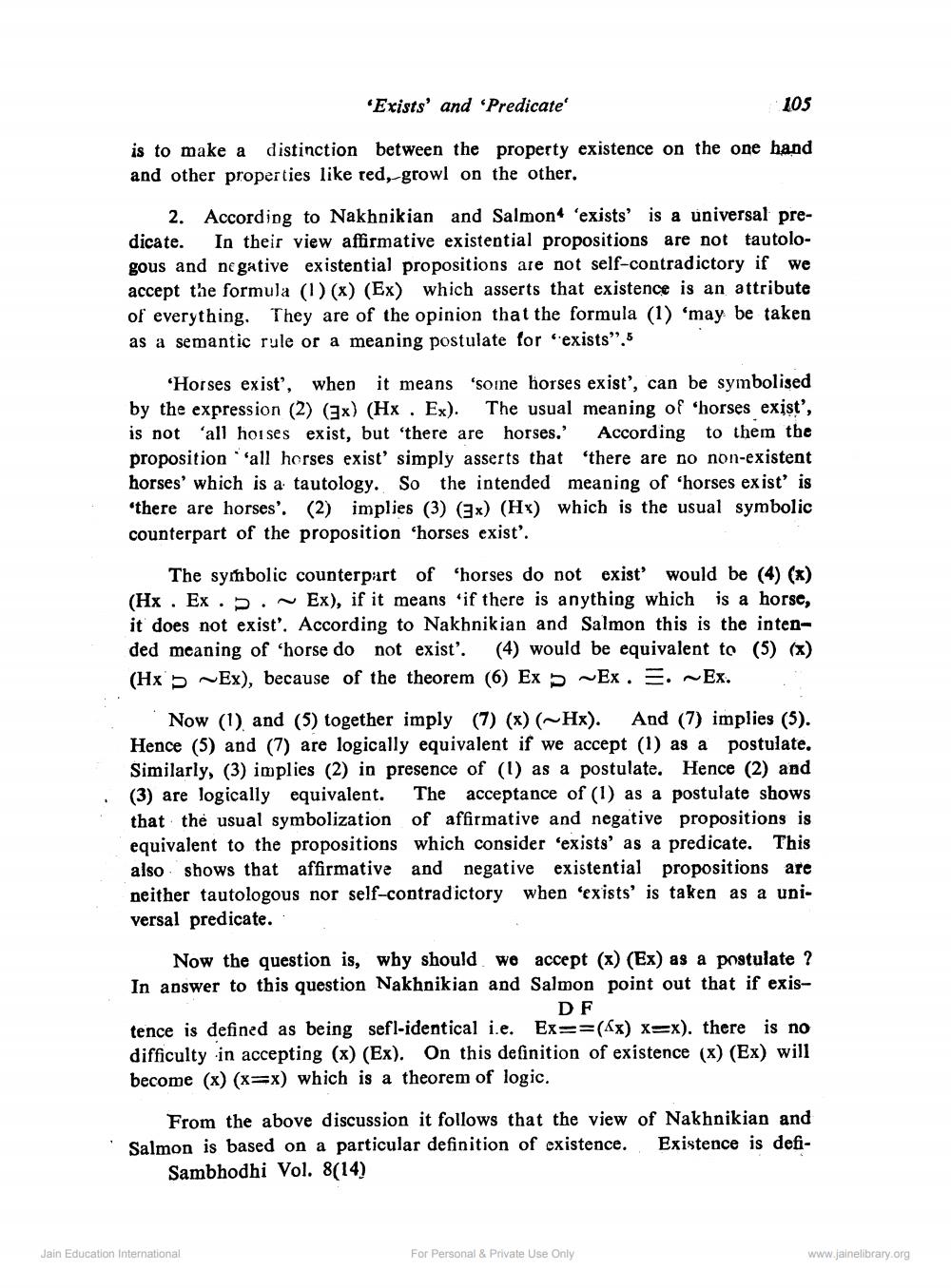________________
'Exists' and 'Predicate'
105
is to make a distinction between the property existence on the one hand and other properties like red, growl on the other,
2. According to Nakhnikian and Salmont 'exists' is a universal predicate. In their view affirmative existential propositions are not tautologous and negative existential propositions are not self-contradictory if we accept the formula (1)(x) (Ex) which asserts that existence is an attribute of everything. They are of the opinion that the formula (1) may be taken as a semantic rule or a meaning postulate for "exists”.5
"Horses exist', when it means 'soine horses exist', can be symbolised by the expression (2) (Ex) (Hx. Ex). The usual meaning of 'horses exist', is not ‘all horses exist, but there are horses. According to them the proposition all horses exist simply asserts that 'there are no non-existent horses' which is a tautology. So the intended meaning of 'horses exist is 'there are horses'. (2) implies (3) (Ex) (Hx) which is the usual symbolic counterpart of the proposition 'horses exist'.
The symbolic counterpart of 'horses do not exist would be (4) (x) (Hx. Ex . . ~ Ex), if it means 'if there is anything which is a horse, it does not exist'. According to Nakhnikian and Salmon this is the intended meaning of 'horse do not exist'. (4) would be equivalent to (5) (x) (Hx 5 ~Ex), because of the theorem (6) Ex Ex. = ~Ex.
Now (1) and (5) together imply (7) (x) (~Hx). And (7) implies (5). Hence (5) and (7) are logically equivalent if we accept (1) as a postulate. Similarly, (3) implies (2) in presence of (1) as a postulate. Hence (2) and (3) are logically equivalent. The acceptance of (1) as a postulate shows that the usual symbolization of affirmative and negative propositions is equivalent to the propositions which consider 'exists' as a predicate. This also shows that affirmative and negative existential propositions are neither tautologous nor self-contradictory when 'exists' is taken as a universal predicate.
Now the question is, why should we accept (x) (Ex) as a postulate ? In answer to this question Nakhnikian and Salmon point out that if exis
DF tence is defined as being sefl-identical i.e. Ex==(4x) x=x). there is no difficulty in accepting (x) (Ex). On this definition of existence (x) (Ex) will become (x) (x=x) which is a theorem of logic.
From the above discussion it follows that the view of Nakhnikian and Salmon is based on a particular definition of existence. Existence is defi
Sambhodhi Vol. 8(14)
Jain Education International
For Personal & Private Use Only
www.jainelibrary.org




